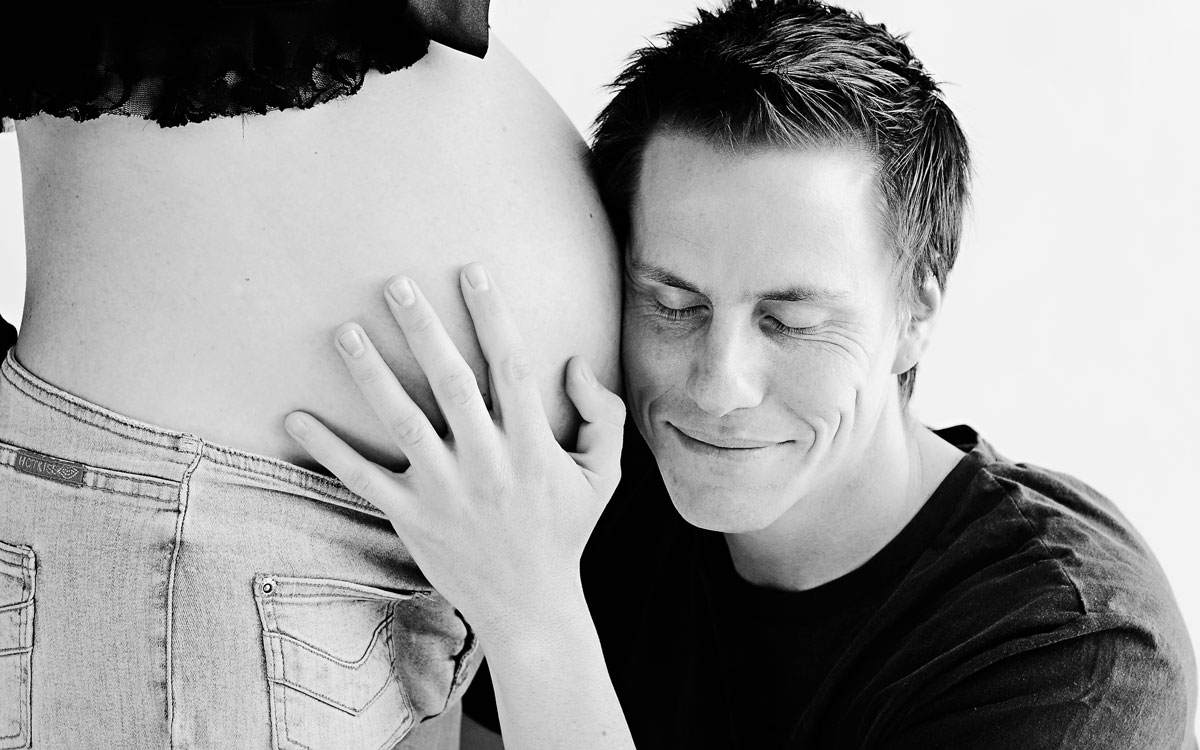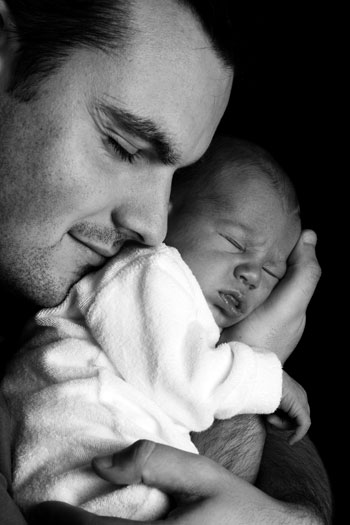Dads-to-be, is it fair to say you haven’t given parenthood as much thought as the mum-to-be has? Most of you don’t usually look at pregnancy websites, maybe because they speak more to mums, and you’re busy. But preparing for fatherhood is worthwhile.

When dads are positively involved in their kids’ care, the children are better off. They end up socially and emotionally healthier and achieve more at school.
Taking an active role as a new dad might mean buying the car seat and the nappies, but there’s more to it than that. It also involves finding out what to expect, creating a work-life balance, taking care of your relationship and knowing where to get advice.
Getting the right baby “stuff”
The first thing to know is you probably don’t need all the baby paraphernalia you see in the shops. But there are some essentials for the first weeks. To start with, you’ll need a car seat to drive anywhere. You’ll need somewhere safe for her to sleep, something to carry her in, clothes for her to wear, and nappies. (More nappies than you think!)
If the mum-to-be is currently cleaning the walls and buying baby things, she’s not just physically preparing your home for the baby. So-called “nesting” is also about getting ready mentally and emotionally. Please join in, and show your support for all her efforts.

Sorting out time off work and flexible hours
To get to know your new baby and help mum recover, you might choose to take leave from work straight after birth. Or you might decide to save it for a few months down the track. Find out about claiming the Australian Government Dad and Partner pay. Dad and Partner Pay builds on whatever paid parental leave your employer offers.
Also, talk to your boss about how you’ll balance work and family time. About 4 in 10 Australian fathers use flexible work arrangements to care for their children. For example,
- If you can work from home, can you make it a more regular thing?
- Can you start work earlier to finish earlier?
- Could you get away in time for dinner and bath time by catching up on emails afterwards?
- Have you accrued lots of holiday leave? Why not book in a day a month to catch up on the home front?
Be aware that some men actually work longer hours after becoming a father. It can be an unhealthy way of coping with the strain of their new role as a dad. Instead, look into other forms of stress management.
Preparing for fatherhood in advance
 Some new dads like to learn from books, some want to learn from others, and some just like to dive in.
Some new dads like to learn from books, some want to learn from others, and some just like to dive in.
You may choose to make an effort to catch up with mates who already have babies to learn from their experience. Plus, you’ll appreciate having friends who understand your new lifestyle after the baby arrives. Ask for their tips on managing newborn days.
There is also plenty of published info designed just for new Dads. To get started, check out these:
- So you’re going to be a Dad by Peter Downey – a down-to-earth, funny and practical guide.
- Preparing for Birth Fathers by Andrea Robertson – A set of antenatal class notes especially for fathers
- Dad’s guide to pregnancy – information on every stage
- Dadvice for new dads – a 4-part video series that follows a group of new Dads adapting to fatherhood
- Birth stories from other Dads.
- Men at Birth – Stories by Men – a collection of experiences showing what to expect and how to support the mother.
- Cheers to Childbirth – a childbirth book for men
After you do your research, the best way to learn to raise children is the same as learning to ride a bike: doing it. Being “hands on” from the get-go is best for your relationship and your child. As soon as you can, get some skin-to-skin contact, talk and sing to baby, change the nappies, bathe and dress her, and carry her wherever you’re going.
Reflecting on and strengthening your relationships
Preparing for fatherhood can bring up fun memories of your own Dad, and painful ones. It’s great to be proactive about the memories you recreate with your kids.
Preparing for fatherhood involves working on your partner relationship too. You might not give it much thought when everything seems to be ticking along. But it’s normal for your relationship to change when you become a father. How can it not? Maintaining the safe and secure “emotional roof” over your child’s head is also a vital part of being a good father.
Sit down to work out your postnatal plan together. Plan to spend one-on-one time with the baby while Mum takes a break. Also, think about who you can ask to watch the baby so you can go out as a couple sometimes. But wait and see how you both feel about this after the baby arrives.
You’ll probably need to talk to each other about the sexual side of your relationship. What you are comfortable with can change from month to month of the pregnancy for each of you. Having these conversations is ideal for negotiating intimacy later after the baby arrives.

Knowing who to call
All babies are different, and even experienced fathers don’t have all the answers. So it’s handy to know where to get help with caring for your new baby.
For example, will you have a midwife visiting you at home? Do you know how lactation consultants can help and where you can access one? Which of your local pharmacies have child health nurses? Where is your community health clinic?
There’s also help available with the psychological side of things. If you or your partner show signs of anxiety, depression or relationship troubles, you can speak with your GP, PANDA (Perinatal Depression and Anxiety) or Relationships Australia.
Preparing for fatherhood well is a mix of practical and psychological actions. Whatever steps you take to get ready, you’ll be benefiting yourself, your child and your whole family.
Reference List
PBB aims to keep you informed with the latest research-based information. Check out our reference list used in the creation of this article.
Published 20th February 2021


It’s great to talk about dads, they can become overlooked in the whole pregnancy and new baby journey. Even in pregnancy dads can start bonding with their baby singing to them and caring for mum. How incredibly exciting to be setting off on the father-child adventure which will last a lifetime.